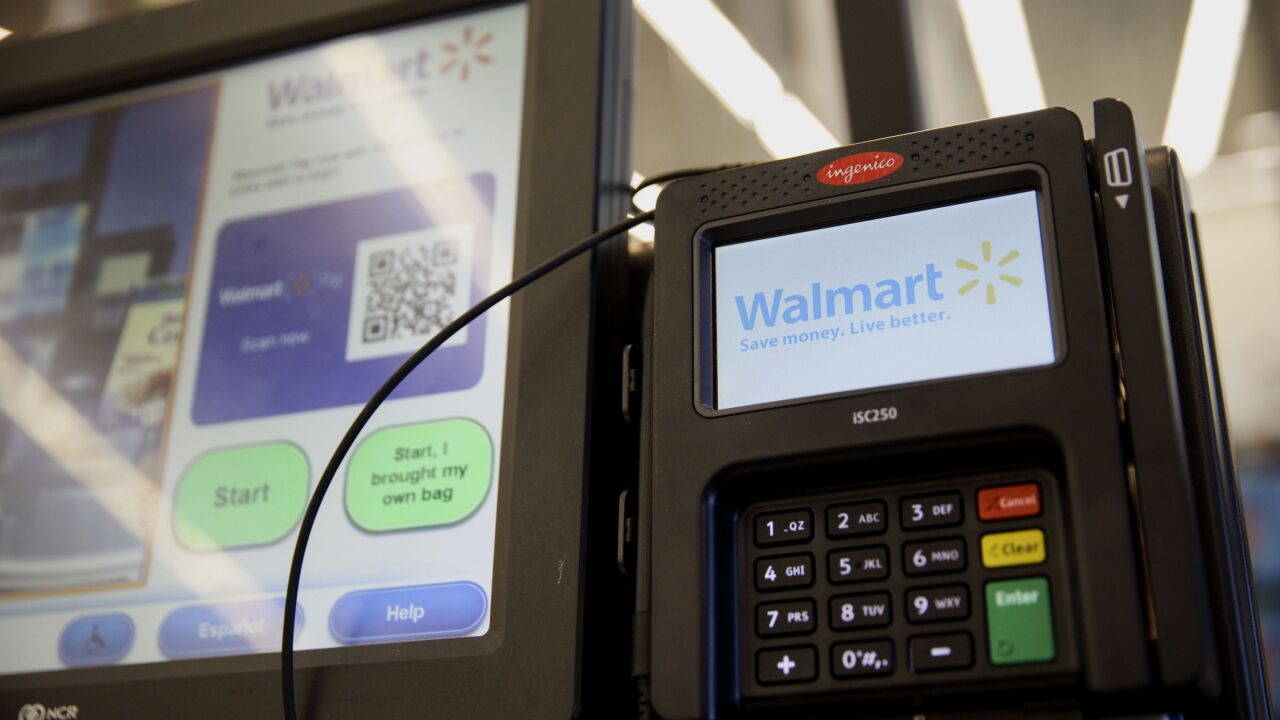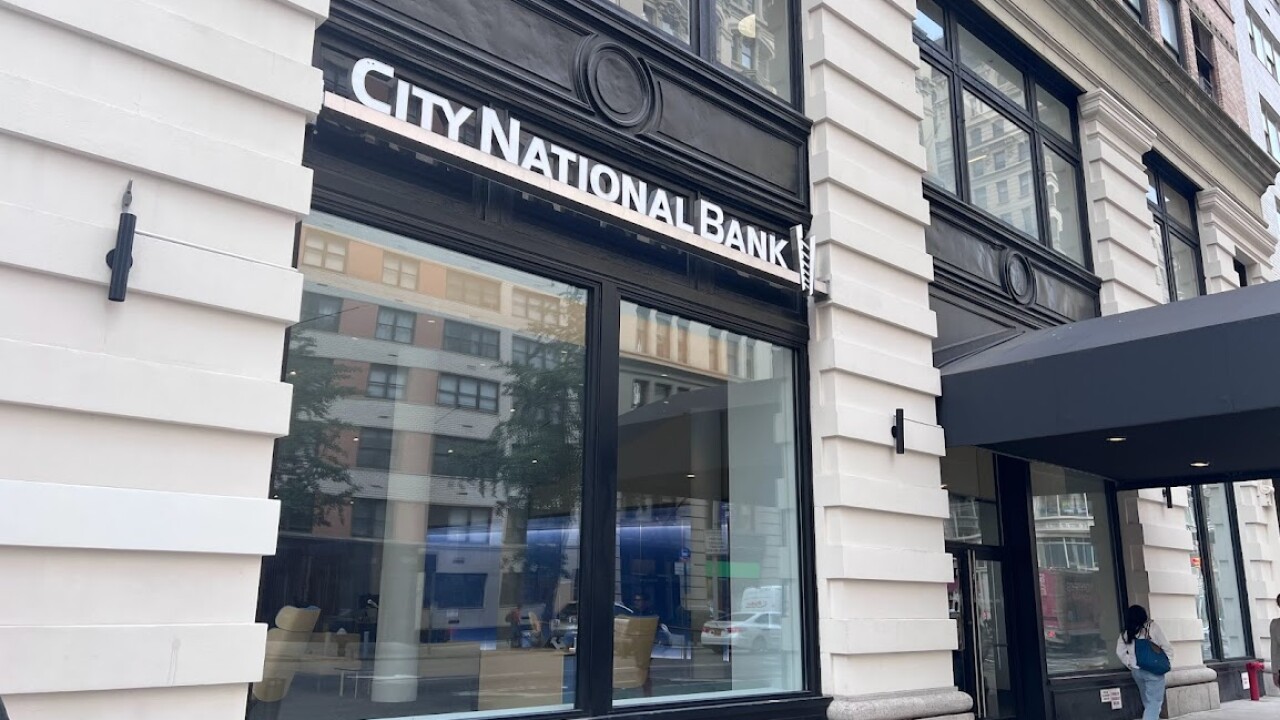
TD Bank Group is using generative AI in its contact centers and software development groups to speed up responses to customers and the process of coding, and it's using machine learning to pre-approve mortgages and approve life insurance applications faster.
These are the latest examples of innovations shepherded by the TD Invent group run by Imran Khan, head of global innovation, in collaboration with Layer 6, an AI startup the bank acquired in 2018 and has scaled up from 15 to 200 people.
It's an example of how innovators at a large bank — TD Bank Group has $1.91 trillion of assets and 27.5 million customers — can cut through the bureaucracy and fiefdoms that exist in every big company to deploy and scale new technology.
"When we were looking at innovation, we looked at a lot of external examples, and a lot of times what we saw in banks and in other organizations was the need to be very independent, to be on an island, to avoid the bureaucracy, be able to be creative, think freely, that sort of thing," Khan said in an interview. "We do believe that's important, but we thought it was even more important to be connected to the enterprise because ultimately that's where you're going to get the value of the innovation."
His team members act as innovation consultants for all other areas of the bank, and meet regularly with senior executives to get buy-in on new projects.
TD, of course, is not alone in its efforts to deploy technology like generative AI.
"Generative AI has really lit up a lot of people's imaginations," said Salim Teja, partner and head of the velocity team at Radical Ventures, an early-stage venture capital firm focused on investing in AI startups. Research recently published by IBM showed that about 40% of Fortune 1000 companies have started to experiment with generative AI within their organization and about 10% have gone live into production with it, he said.
"The leading sector where experimentation is happening today is financial services," Teja said. "What you will soon see is a lot of really great value propositions being launched out of the financial services sector to the market as this technology starts to mature."
Advanced AI pilots
At TD, when contact center representatives need help answering a complicated customer question, they typically need to seek the advice of supervisory support teams, a process that can lead to longer hold times. TD developed a generative AI virtual assistant that, once implemented, is designed to help contact center colleagues retrieve answers to these inquiries in seconds. The technology is in pilot.
Layer 6 helped develop and train the generative AI virtual assistant, working alongside colleagues with a deep understanding of TD policies and procedures. The generative AI virtual assistant provides summarized responses to contact center reps using conversational language. It includes links to the TD policies and procedures it uses to source its answers.
TD has also been testing the use of GitHub Copilot, a generative AI programming assistant developed by Microsoft, among its software developers.
GitHub Copilot is designed to help streamline simple tasks and accelerate code development. Users can prompt Copilot in plain English to get responses to coding questions, explanations of complex coding topics and suggestions for security recommendations. At TD, GitHub Copilot is assisting engineers by analyzing the code they're writing and providing real-time suggestions for completing and testing it. This frees TD's engineers to focus on tasks that require more expertise.
Between September and December 2023, a group of TD engineers tested GitHub Copilot to help develop unit testing code. A unit test is a block of code that verifies the accuracy of a smaller, isolated block of application code, typically a function or method. In a survey of colleagues who participated in the test, 50% of engineers said GitHub Copilot could save them up to 20 hours over a two-week sprint and 75% of engineers surveyed said it was easy to integrate GitHub Copilot into their everyday work.
Organizing for AI and other innovations
TD Invent spearheaded both the contact center and the engineering pilots. "We see generative AI as innovation, for obvious reasons," Khan said.
Khan's team includes designers, anthropologists and sociologists.
"We have folks with many different backgrounds that can help us create and invent new experiences," Khan said. "If you have human factors expertise, you can observe someone using an experience and get a good sense of if it's really going to work or not. And that helps us test new concepts."
His team tests, observes and learns how these technologies can enhance employee or customer experiences.
"We get a really good understanding of whether something will work or not, and then we can make a decision on whether we want to scale it back into the enterprise or not," Khan said.
If his team thinks a technology has promise for use in a real-life scenario, he brings it up in regularly scheduled meetings with senior leaders of the bank to get their endorsement.
To communicate and raise awareness of tech projects at the other levels of the hierarchy, Khan's group runs education programs.
"It's never perfect," Khan said. "When you're dealing with such a large organization, you have to stay very diligent to make sure everyone that needs to know, knows and has the right level of awareness."
The Invent team identifies complex problems across the enterprise and how innovation might solve those problems.
"In some cases we have to pull expertise across the enterprise," Khan said. "It could be AI, it could be somewhere in technology, it could be somewhere in a specific product or service that the bank has."
Layer 6 is an example. "They're a great partner and we have fantastic expertise within the Layer 6 group," Khan said.
All told, the Layer 6 team has developed almost 50 AI models.
Two recent examples are models for mortgage pre-approvals and term life insurance decisions. The bank has been using the mortgage pre-approval model since August 2023. It can provide pre-approvals for some applications seconds after they're submitted, according to the bank. Applications that aren't approved by the model are reviewed by human underwriters, who now have the time to focus on more complex files.
TD's insurance unit has been using a Layer 6 machine learning model to streamline the life insurance application process since March 2023. It reviews and approves nearly half of the term life insurance applications it receives, in some cases within seconds after they're submitted. As with the mortgage pre-approvals, life insurance applications not approved through the machine learning model are reviewed by human underwriters.
TD says that in the past three years, it's filed 2,500 patents, of which 450 are related to AI.
One thing TD does that's a bit unusual is it asks for new ideas from the bank's retail employees and other customer-facing workers.
"There's a tremendous amount of insight that we get from our frontline staff, and giving them the ability to have a voice, to be able to ideate and share those ideas is really important," Khan said.
A program called iD8 lets all employees submit ideas. Since the program's launch in 2019, nearly 63,000 ideas have been submitted, many from workers who deal with customers. Last year, employees submitted 18,000 ideas and about 10% of them have been implemented, Khan said.
When someone submits an idea, colleagues all over the bank have the opportunity to upvote it.
One example of an idea that came through iD8 is TD's Early Talent VR program. New hires are given virtual reality headsets and the bank creates events where people can do things like do yoga, play pool and join conferences with senior leaders. TD announced on Wednesday that it's expanding the program to the U.S.
Helping programmers become more productive, modernizing legacy systems and conducting compliance assessments are among the hundreds of gen AI use cases in production or in the pipeline for Shadman Zafar, co-CIO for Citi and lead for the bank's generative AI work.
Large banks like TD that want to lead in adoption of generative AI need to do three things, according to Teja at Radical Ventures.
First, they need to create a culture of experimentation.
"This is a new technology area," Teja said. "It can be used in so many different ways. I think there's going to be an experimentation process to define use cases, ROI and prepare our workforce to be able to leverage these tools in powerful ways. And so creating this culture of experimentation is going to be critical within enterprises."
Second, they need to ideate around the solutions they want to develop using generative AI. "Let's look to put together multidisciplinary teams so that we can look at different challenges and different approaches to building new solutions in this space," he said.
Third, they have to keep an eye on data privacy and security. Using this technology to enable trust and transparency, they create new experiences for users.
Teja puts TD at the top decile of companies that are innovating in generative AI.
At TD, much of the generative AI discussion is about how to best make humans and generative AI models work together.
"AI is not new, neither is generative AI," said Rizwan Khalfan, chief digital and payments officer at TD Bank Group. "But the confluence of the different technologies is creating a significant impact on how we live, work and play. So it's really important for us to figure out, how do we keep the human in the center of all this innovation?"






